Listen
Many Tories had doubts about David Cameron’s EU renegotiation, but only Boris Johnson was promised a piece of legislation to assuage his particular concerns. It was quite a compliment. The so-called Sovereignty Bill was, in effect, the Get Boris Onside Act. It was designed to deal with the Mayor of London’s fears about the relationship between the British parliament and courts and the EU. It was also mooted that Boris would be offered a top cabinet job — perhaps Foreign Secretary. The Prime Minister was convinced that this combined offer would be enough to secure Boris for the ‘in’ campaign.
But a few days before the Brussels summit, when Oliver Letwin telephoned Boris to run through the Sovereignty Bill, he sensed trouble. As the conversation went on, Boris’s concerns seemed to multiply. Even if Cameron secured his deal, he said, EU law would still retain supremacy over UK law. And there was still no answer to the question, posed by Boris’s wife Marina Wheeler QC in The Spectator, about the Charter of Fundamental Rights. Then Johnson told Letwin he was going to put the call on speakerphone while he consulted his dinner guest Michael Gove. The Lord Chancellor was already known to be tending towards supporting ‘out’. When Letwin finally put down the phone, the Tory leader-ship had to face the fact that Boris might follow Gove in backing Brexit. Perhaps this episode explains why Cameron was so short with the Mayor when they met the next day to discuss the matter.
Four days later, Boris made it official. He would defy Cameron and advocate leaving the European Union. Today, the two best-known Tories in the land stand in direct opposition on the most important vote the UK has had since the second world war. Only one of them can win.
Cameron is infuriated by Boris’s decision and makes little attempt to disguise it. In the Commons he launched a thinly veiled and deeply personal attack on his fellow Old Etonian, implying that he was only backing ‘out’ to further his own career. After the exchange, one observer said Boris looked as if he had been mugged. A member of his camp said: ‘We weren’t expecting a warm reception, but we weren’t expecting that level of vitriol either.’
And it has only just begun. Cameroons claim Boris’s decision is an act of ‘naked self-interest’. A source close to the Tory leadership predicts that Boris’s decision to back ‘out’ will be a disaster: ‘He’s going to struggle in interviews as he doesn’t believe in getting out of Europe and he’ll face the kind of scrutiny he’s not faced before. He’s not good on detail.’
The personal attacks will only increase in ferocity as time goes on. ‘He was given all the time in the world to make up his mind,’ another source adds. ‘He’s made his bed, he’s now got to lie in it.’ When I asked if Boris could still serve in a Cameron cabinet, the acid reply was: ‘Boris will make a very good International Development Secretary.’
It might be satisfying to savage Boris in this fashion, but it is not entirely wise — as some cooler-headed Cameroons admit. No. 10 appears to have forgotten Michael Corleone’s dictum, ‘Never hate your enemies. It affects your judgment.’ But if it wasn’t war before, it is now. ‘Boris is going to have to come out gloves off,’ warns one minister who is backing ‘out’. The Mayor is acutely aware that he is fighting for his political life.
But leadership ambition does not entirely explain his decision to vote to leave. If Boris’s only aim was to succeed Cameron, he would have been better off playing nice, backing ‘in’ and becoming Foreign Secretary before making a leadership bid when the PM stepped down. Backing ‘out’ is a far riskier strategy as it currently looks like the losing side — one poll this week had ‘in’ ahead by two to one.
But this more perilous route to the top has greater intellectual coherence for Boris. It makes his years of mocking daft EU initiatives not just journalistic mischief-making but an attempt to alert the British public to the extent to which rules and regulations were coming from Brussels, not Westminster. As one colleague puts it, supporting ‘out’ is ‘a culmination of his career and instincts’.
But if Cameron is determined to win the civil war in the Tory party by whatever means necessary, George Osborne is already planning for the peace. Intriguingly, Osborne’s allies are letting it be known that he had the Goves to Dorneywood, the Chancellor’s country retreat, last weekend. Apparently, it was a ‘very happy occasion’. It was also a rather extraordinary one, given the timing.
Gove had already made his declaration to cabinet, visited the offices of the ‘out’ campaign Vote Leave, and posed for photographs. He had also released his personal manifesto for Brexit — the most powerful piece of writing by a British politician in living memory. Then the Goves went to break bread with the Osbornes. ‘When George realised Michael was “out” there was a moment of rage,’ explains one Tory moderniser. ‘But he’s now in full reconciliation mode — George has adapted to the new reality.’ This is about as civil as civil wars get.
More than 120 Tory MPs are backing ‘out’ — with more to declare. Gove has given the ‘out’ side intellectual firepower, and Boris has brought voter appeal. Osborne had hoped to deride all outers as cranks and gadflies. He wanted the campaign question to be: ‘Who does the country trust — the Prime Minister, or Nigel Farage?’ Cameron himself mentioned the Ukip leader four times in his interview with Andrew Marr.
The Tory leadership can still make the point that ‘no one with great economic heft’ has backed ‘out’, by which they mean no minister in either of the economic departments is making the case for Brexit. It will be hard, they hope, for ‘out’ to neutralise the economic argument and withstand the barrage by business leaders wanting to remain in the EU. How will the ‘out’ campaign respond if the pound starts collapsing days before the referendum? A great deal of effort was put into persuading Sajid Javid — an instinctive Eurosceptic — to back ‘in’. ‘It would have been very difficult if the Business Secretary had gone the other way,’ says a Tory who is supportive of the leadership.
But the ‘out’ campaign is confident that it will be able to produce some influential business backers in the next few weeks. They believe that now they have the support of senior politicians, they will be able to get people sympathetic to them to make the case for leaving in public.
The referendum will now be a proper contest. Just a few months ago, it looked like the ‘out’ campaign’s most familiar face would be Farage. It seemed as if Osborne’s plan would come off and the debate would be turned into a choice between the future and the past for both the country and the Tory party. Now the referendum battle will present two futures for voters to choose between.
Gove and Johnson will bring a distinctly 21st-century take to the campaign for leaving. They will attack the EU for being a closed regional bloc in an increasingly open world. Expect to hear a lot more of Gove’s argument that the EU ‘is an analogue union in a digital age’. This jibe is in fact a riff on the one Cameron used to attack Gordon Brown ten years ago when, responding to a budget, Cameron said: ‘He is an analogue politician in a digital age. He is the past.’ Notting Hill folklore has it that the line was actually written by Sarah Vine, Mrs Gove, now a Daily Mail columnist.
Yet for all the éclat with which Boris and Gove have backed out, it is important to remember that the odds are heavily stacked against them. The ‘in’ campaign has the Prime Minister on its side and he is still the most formidable politician of the moment. Cameron will endlessly remind voters that he isn’t running for re-election, so he is offering his view on what is best for Britain with no hidden agenda.
The Prime Minister’s message will be reinforced by the panjandrums of business who will pop up at regular intervals to warn us of the dangers of quitting the EU. They will ask an electorate, already wary on economic matters, if they really want to go through the years of disruption that leaving would entail. Another advantage for ‘in’ is the support of most of the senior Labour figures. The number of people on the centre-left making the argument for Brexit is strikingly small. If the ‘out’ campaign is to win, it will have to find a way to reach these voters without the assistance of a well-known Labour figurehead.
But what has changed in the last few days is that the ‘out’ campaign has been decisively wrested from the hands of Nigel Farage and his ‘useful Tory idiots’ and placed in the political mainstream. Gove’s declaration has given the ‘out’ campaign a clear intellectual case to present to the public, and in Boris Johnson the outers have someone who can take this argument to the country. The MPs who are joining ‘out’ — Priti Patel, Kwasi Kwarteng, Dominic Raab, Nusrat Ghani — look very much like the party’s future. Or at least a significant part of it.
For all the focus on Westminster, events beyond our borders could well determine the referendum. The migrant crisis will continue to intensify. The eurozone crisis could return with a vengeance.
But whatever happens elsewhere, the Conservative party cannot avoid the defining question: should a Tory want Britain to leave the European Union or stay in it? As William Hague has said, the party could have ten or perhaps even 15 years of power ahead, if the party can avoid tearing itself apart over Europe. As matters stand today, that’s a very big ‘if’.
REFERENDUM 2016: THE BATTLE AHEAD
Join Isabel Hardman, James Forsyth and Fraser Nelson at the ICA, near Trafalgar Square, to discuss the campaign with Ben Page, pollster at Ipsos Mori. A subscriber-only event. To book, click here. To subscribe from £1/week, click here.
Got something to add? Join the discussion and comment below.
Get 10 issues for just $10
Subscribe to The Spectator Australia today for the next 10 magazine issues, plus full online access, for just $10.
You might disagree with half of it, but you’ll enjoy reading all of it. Try your first month for free, then just $2 a week for the remainder of your first year.


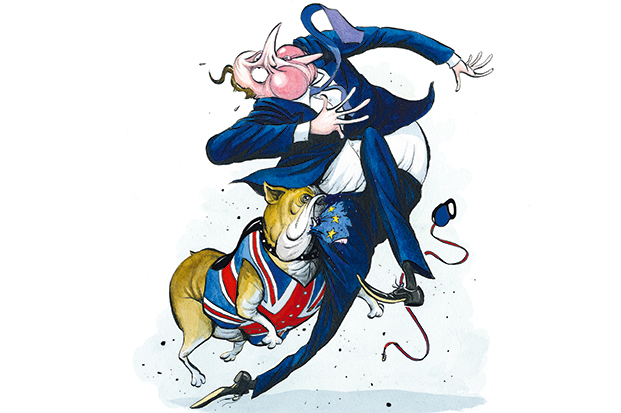


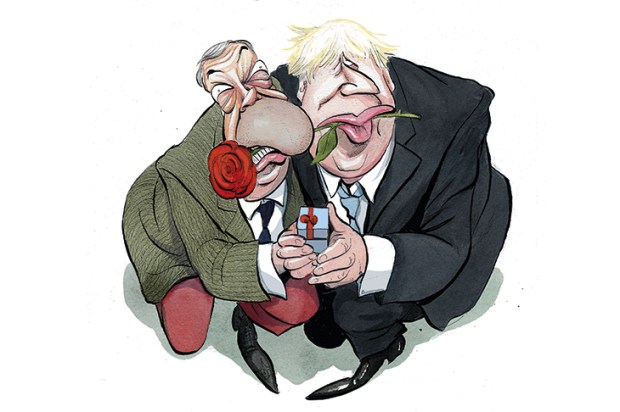
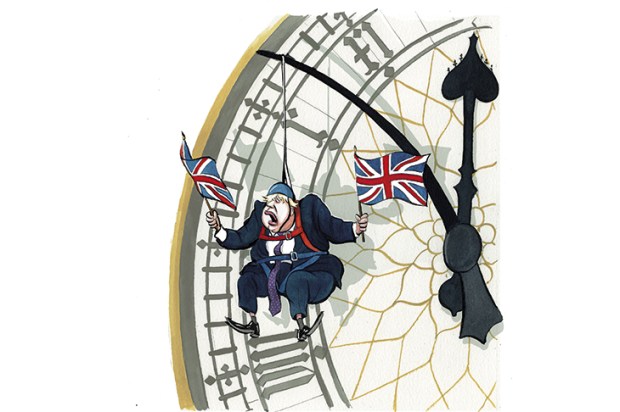
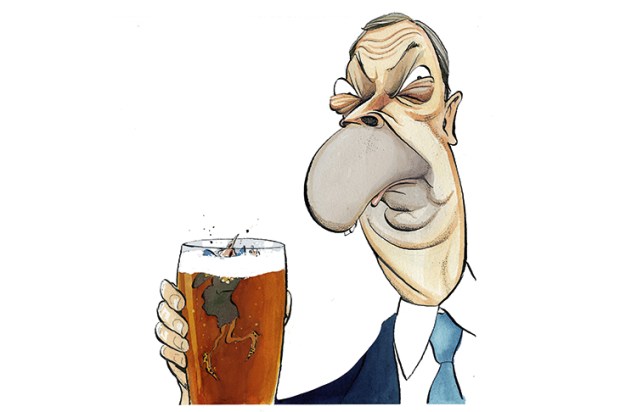

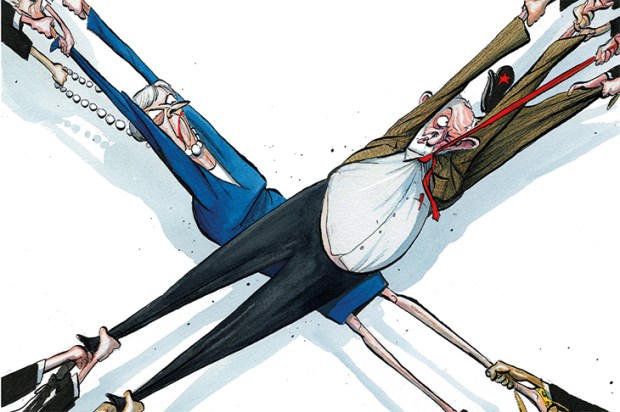






Comments
Don't miss out
Join the conversation with other Spectator Australia readers. Subscribe to leave a comment.
SUBSCRIBEAlready a subscriber? Log in